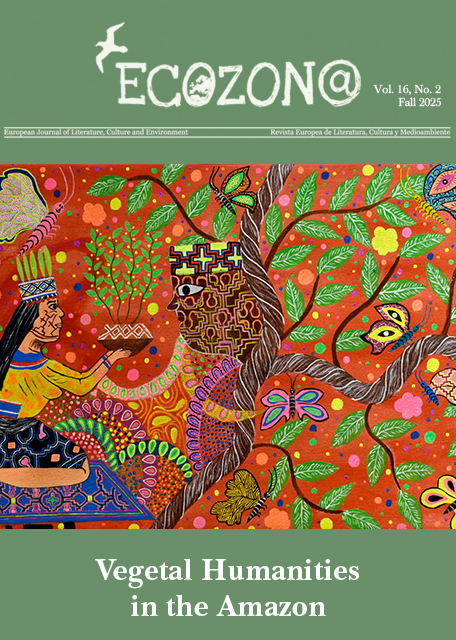Embodying Environmental Relationship: A Comparative Ecocritical Analysis of 'Journey' and 'Unravel'
DOI:
https://doi.org/10.37536/ECOZONA.2021.12.2.3868Parole chiave:
ecocritical game analysis, game design, semiotic register, player-to-landscape relationship, embodimentAbstract
Departing from Jane Suzanne Carroll’s contention that “Landscapes are at once geographical and historical, natural and cultural, experienced and represented, and present a spatial interface between human culture and physical terrain” (2), this article draws on game studies (Aarseth; Sicart; Yee; Isbister) and on discussions of game design (Schell; Chen; Sahlin) to analyse the landscape and avatar design of Journey and Unravel. Developing the term semiotic register as an analytical lens, the article seeks to pin-point the means by which the two games move the player to adopt distinctly different attitudes and relationships to the games’ natural scenes. The article starts by positioning the study in relation to previous ecocritical analyses of games (Backe; Bianchi; Bohunicky; Chang; Lehner; Parham) and by discussing some aspects of indirect player management before analysing and comparing the two games in more detail.
Downloads
##submission.downloads##
Pubblicato
Fascicolo
Sezione
Licenza
Authors who publish with this journal agree to the following terms:
a) Authors retain copyright and grant the journal right of first publication with the work simultaneously licensed under a Creative Commons Attribution License that allows others to share the work with an acknowledgement of the work's authorship and initial publication in this journal (CC BY-NC for articles and CC BY-NC-ND for creative work, unless author requests otherwise.
b) Authors are able to enter into separate, additional contractual arrangements for the non-exclusive distribution of the journal's published version of the work (e.g., post it to an institutional repository or publish it in a book), with an acknowledgement of its initial publication in this journal.
c) Authors are permitted and encouraged to post their work online (e.g., in institutional repositories or on their website) prior to and during the submission process, as it can lead to productive exchanges, as well as earlier and greater citation of published work (See The Effect of Open Access).










